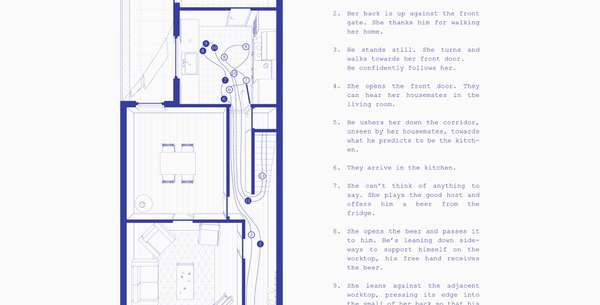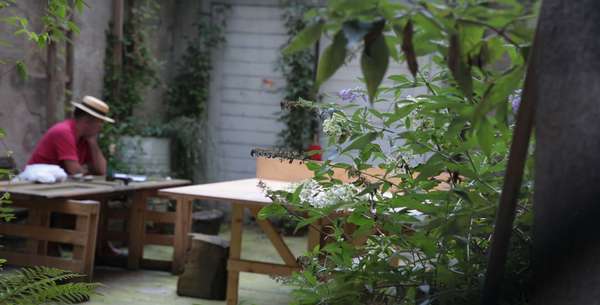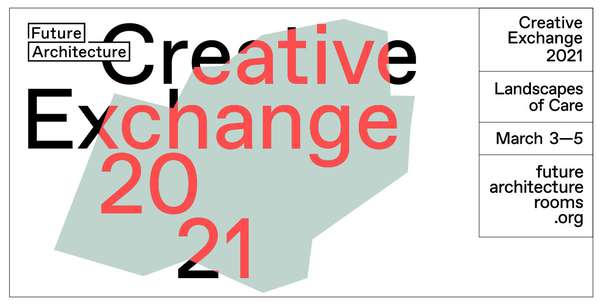Idea by
Alberte Lauridsen, Alice Meyer, Hannah Rozenberg, Marianna Janowicz, Svitlana Lavrenchuk, Saijel Taank, Sophie Williams,
Edit Collective
https://www.editcollective.uk/
Call for ideas 2021
Honey, I'm Home!
Honey, I'm Home!
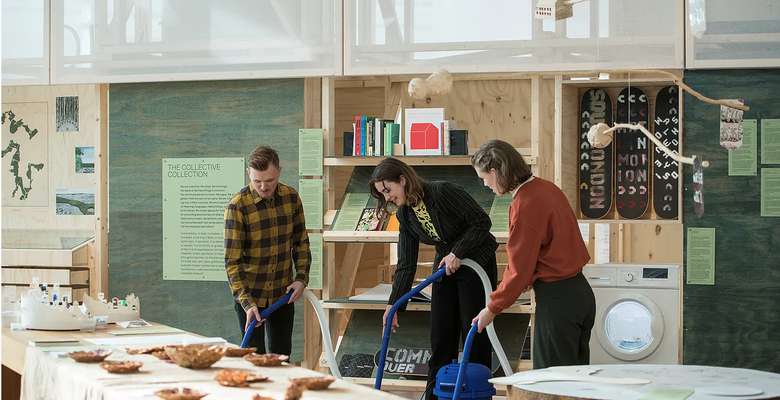
- Systemic changes
The project explores the domestic realm as a political entity, rather than a space that has organically grown out of natural human behaviour. As the base unit of our current socio-economic system, the nuclear family and its home is a key starting point when trying to rethink the way we live together.
‘Gross Domestic Product’, exhibited at Oslo Architecture Triennale 2019 was a fictional prototype for collectivising domestic labour. A hoover designed to be be operated by three people simultaneously, it asks questions about domestic work, its division and invisibility.
The rise of consumerism, alongside the privatisation of domestic utilities (for example gas connected to personal stoves), collided at a critical point where our western culture moved towards private domestic work. We have a history of shared kitchens, shared laundrettes and public bath houses as proud civic monuments, which the project seeks to reference and learn from.
Image: Nasjonalmuseet / Annar Bjørgli
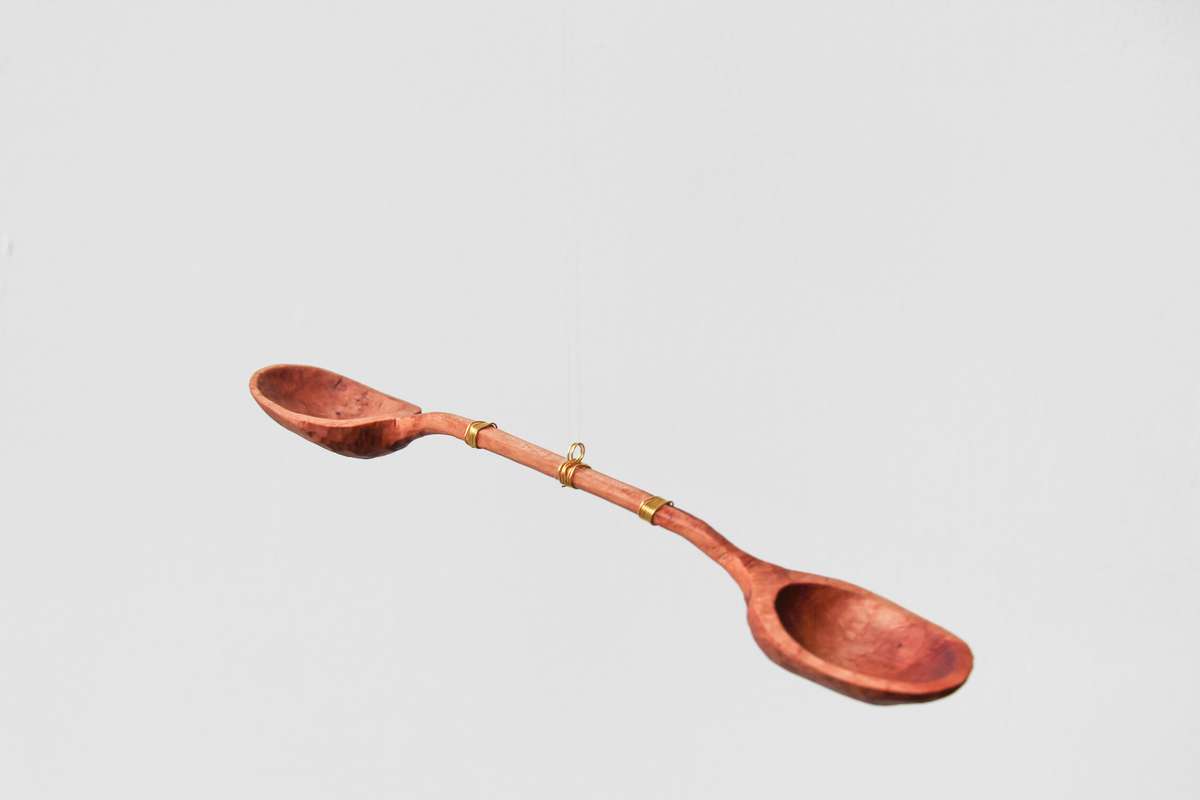
Spoon me is a meditation on the doting activity of feeding. The double ended utensil disrupts the idea of care as a one-sided relationship, posing questions about power structures at home. A symmetrical eating device can be seen as a manifest for interdependence and equality in our most intimate settings and pursuit.
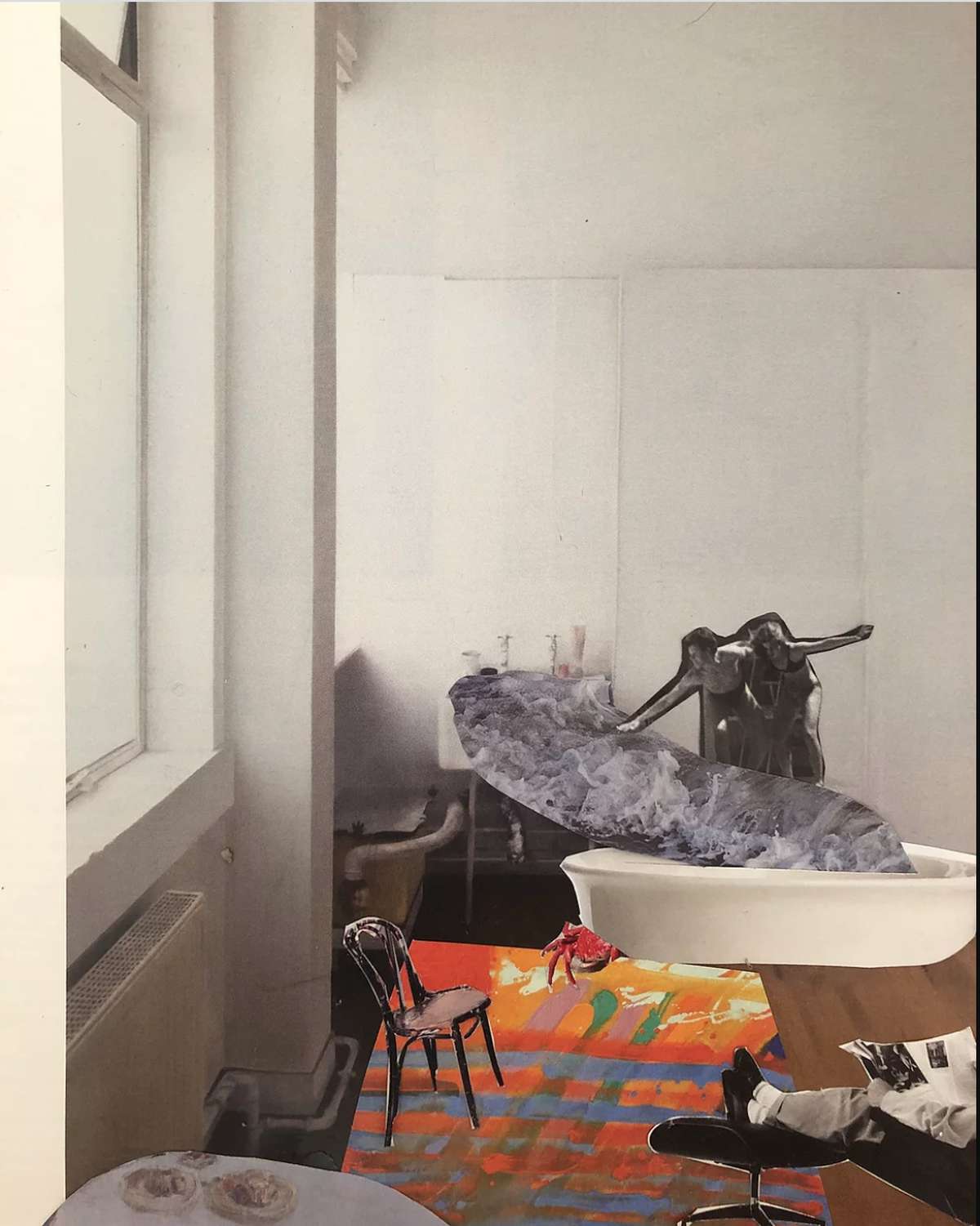
We are taught to use different rooms within our house for specific actions: we sleep in the bedroom, we eat in the kitchen, we clean ourselves in the bathroom. What would happen if these actions were mixed by misplacing the furniture that supports them?
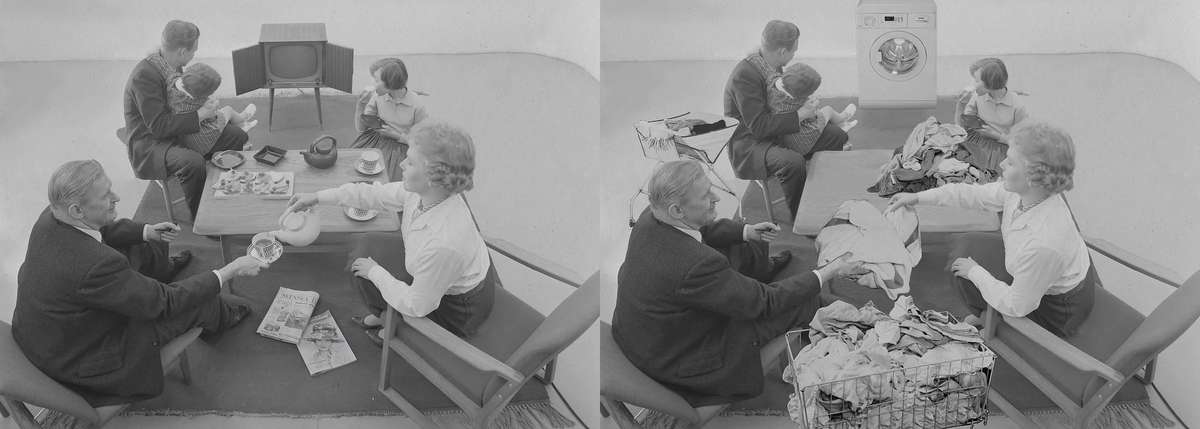
Alternative Histories uses recognisable images from popular culture to highlight ingrained behaviour and social constructs. These quick and accessible thought experiments were initially intended as part of the fictional narrative for the Gross Domestic Product, imagining how our world may now look had the first domestic hoover been designed for collective use.
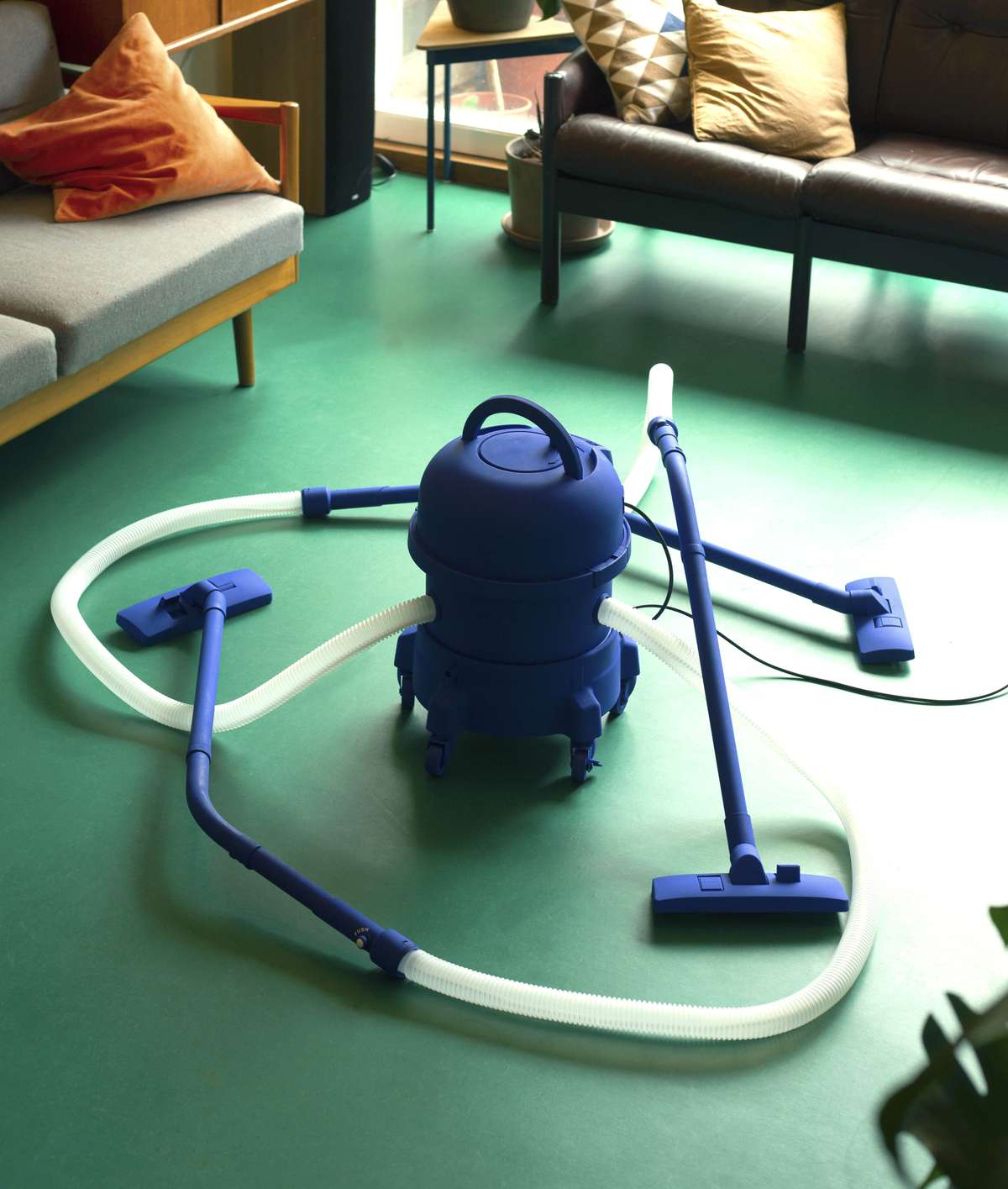
The Gross Domestic Product (GDP) is a fictional prototype for collectivising domestic labour. As an alternative to the capitalist assumption that housework is most efficient when performed individually, the GDP is a device that can be used only by three people. Domestic tools, such as hoover, lawn mower or microwave, are not only designed to be used solo but also privately, and are therefore complicit in the patriarchal system of unpaid reproductive work that happens behind the scenes.
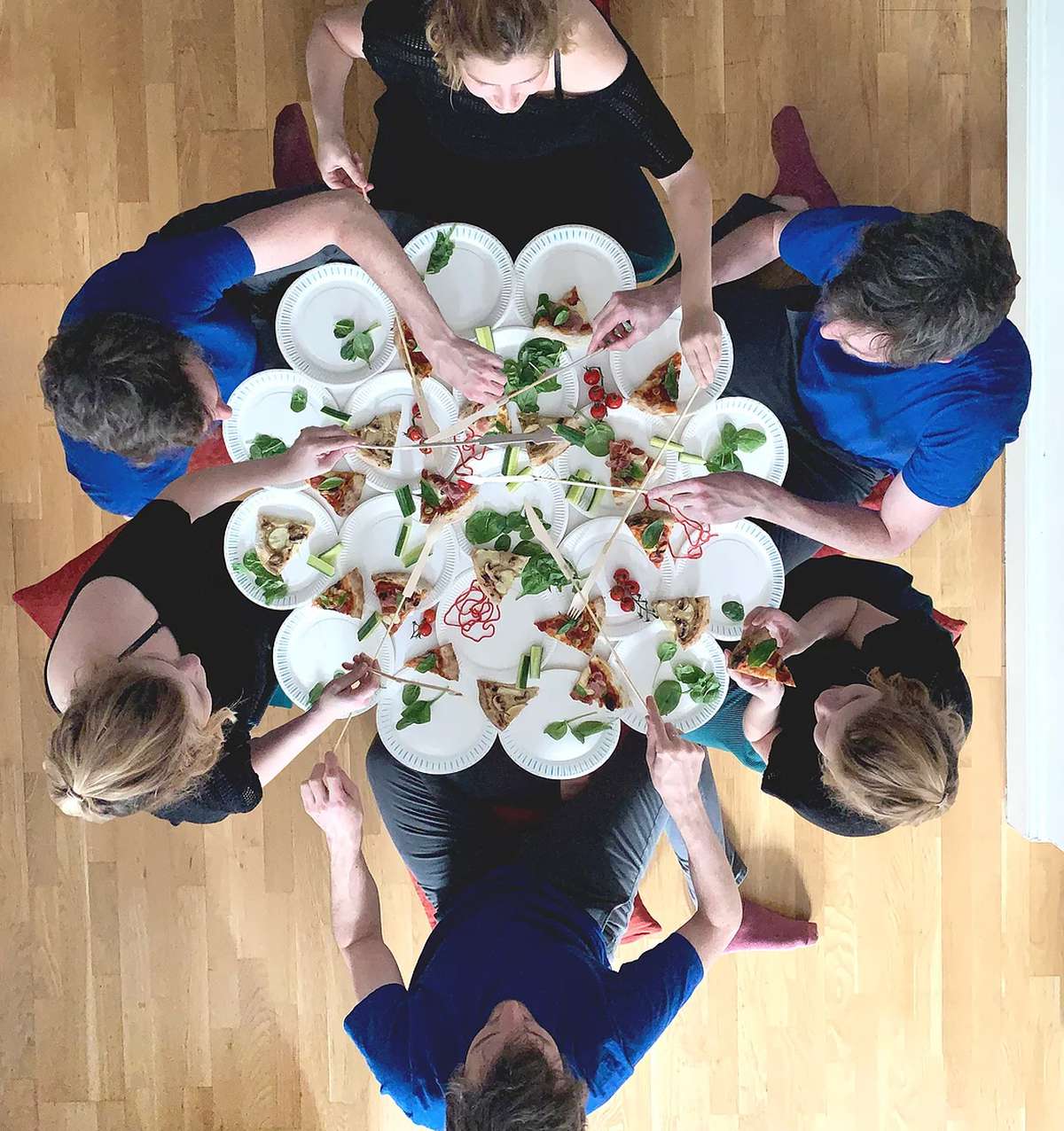
"Could you imagine a new dinner table where everyone eats together on a giant plate or drinks together with a long garland of glasses? It could result in lots of options of food and drinks, shared equally by the entire family. Could washing up become a fun collective activity to do all together after pudding?"
Honey, I'm Home!
Honey, I'm Home!

- Systemic changes
The project explores the domestic realm as a political entity, rather than a space that has organically grown out of natural human behaviour. As the base unit of our current socio-economic system, the nuclear family and its home is a key starting point when trying to rethink the way we live together.
‘Gross Domestic Product’, exhibited at Oslo Architecture Triennale 2019 was a fictional prototype for collectivising domestic labour. A hoover designed to be be operated by three people simultaneously, it asks questions about domestic work, its division and invisibility.
The rise of consumerism, alongside the privatisation of domestic utilities (for example gas connected to personal stoves), collided at a critical point where our western culture moved towards private domestic work. We have a history of shared kitchens, shared laundrettes and public bath houses as proud civic monuments, which the project seeks to reference and learn from.
Image: Nasjonalmuseet / Annar Bjørgli
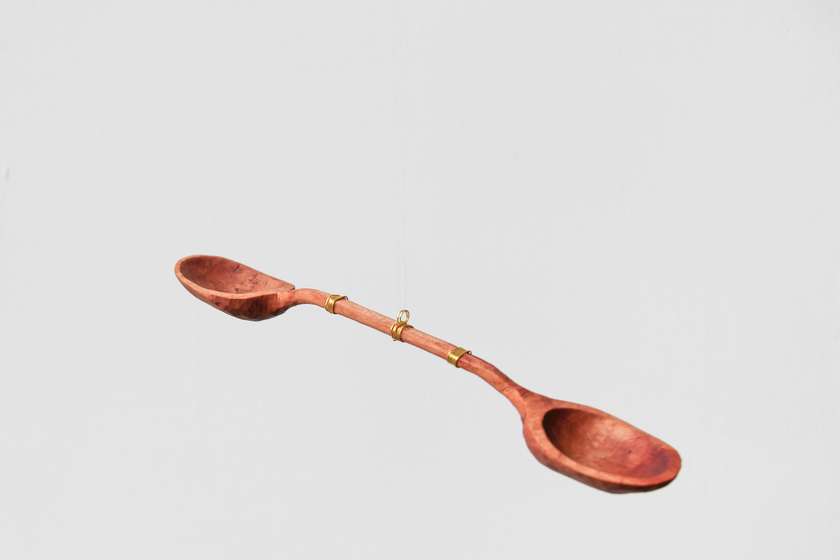
Spoon me is a meditation on the doting activity of feeding. The double ended utensil disrupts the idea of care as a one-sided relationship, posing questions about power structures at home. A symmetrical eating device can be seen as a manifest for interdependence and equality in our most intimate settings and pursuit.
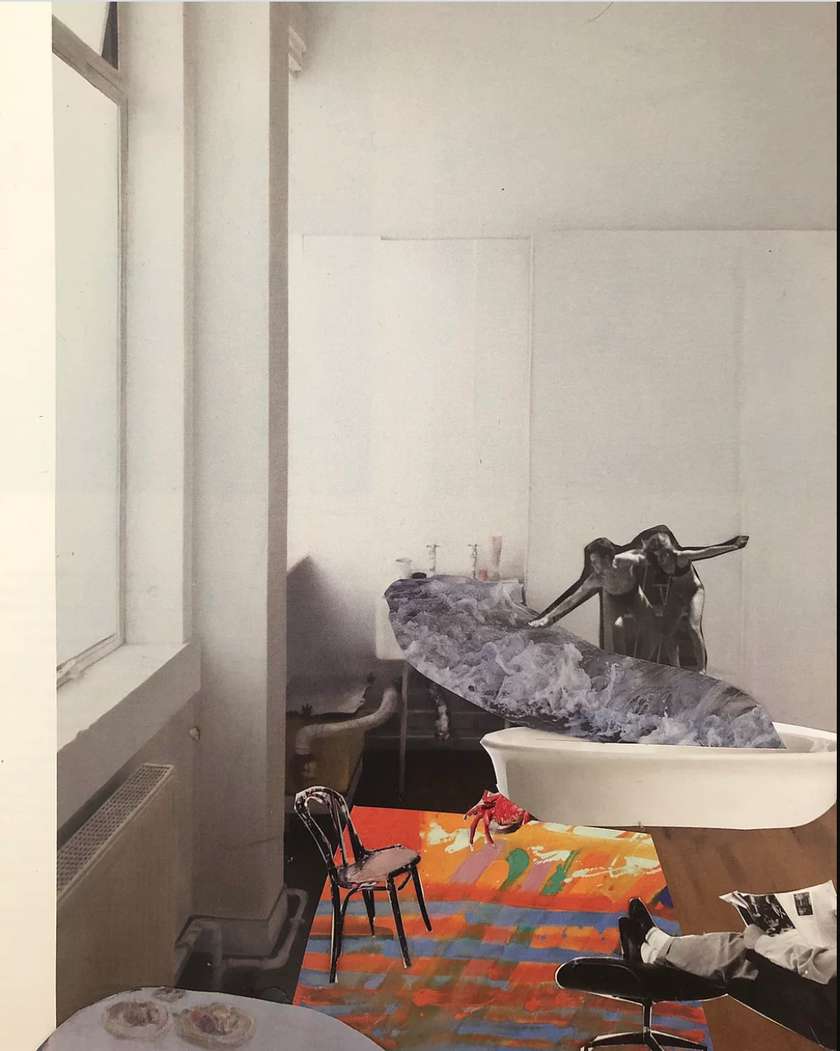
We are taught to use different rooms within our house for specific actions: we sleep in the bedroom, we eat in the kitchen, we clean ourselves in the bathroom. What would happen if these actions were mixed by misplacing the furniture that supports them?
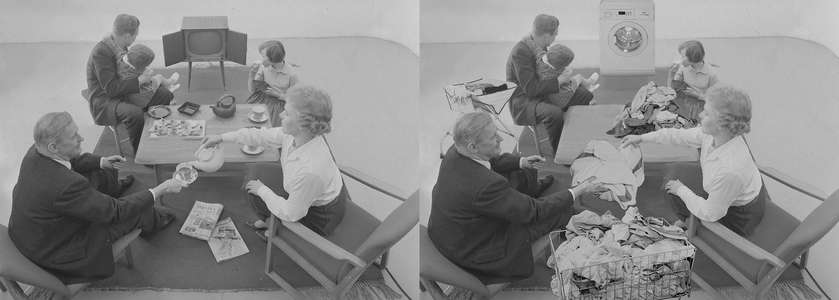
Alternative Histories uses recognisable images from popular culture to highlight ingrained behaviour and social constructs. These quick and accessible thought experiments were initially intended as part of the fictional narrative for the Gross Domestic Product, imagining how our world may now look had the first domestic hoover been designed for collective use.
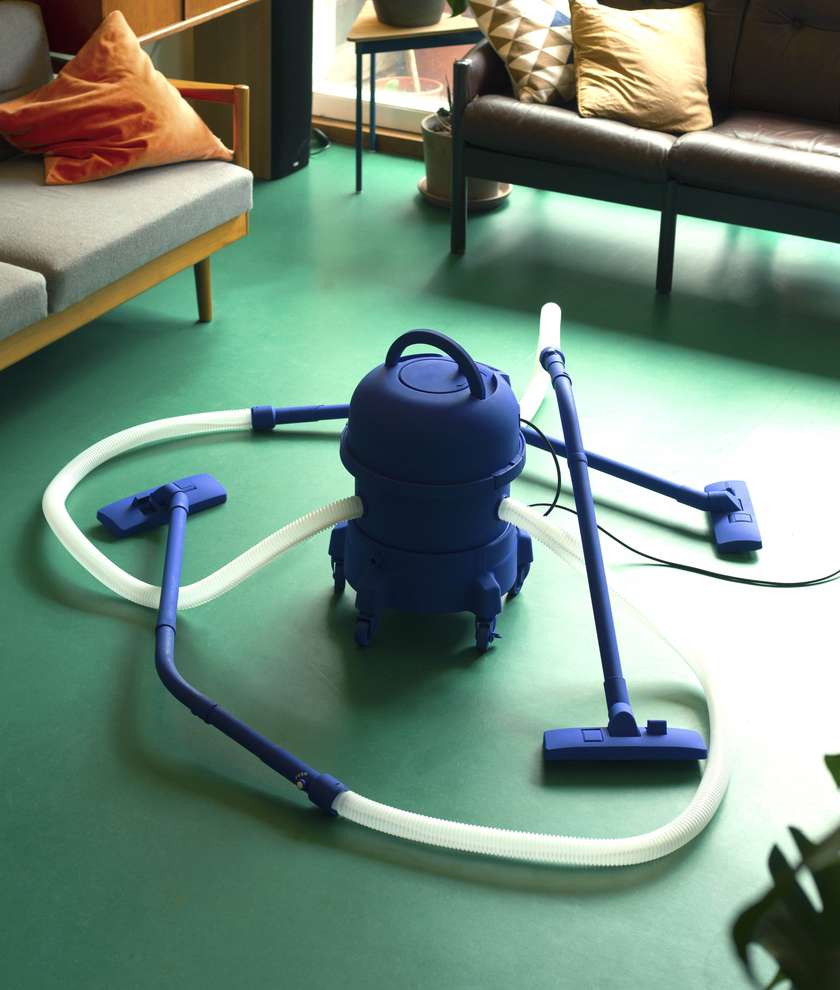
The Gross Domestic Product (GDP) is a fictional prototype for collectivising domestic labour. As an alternative to the capitalist assumption that housework is most efficient when performed individually, the GDP is a device that can be used only by three people. Domestic tools, such as hoover, lawn mower or microwave, are not only designed to be used solo but also privately, and are therefore complicit in the patriarchal system of unpaid reproductive work that happens behind the scenes.
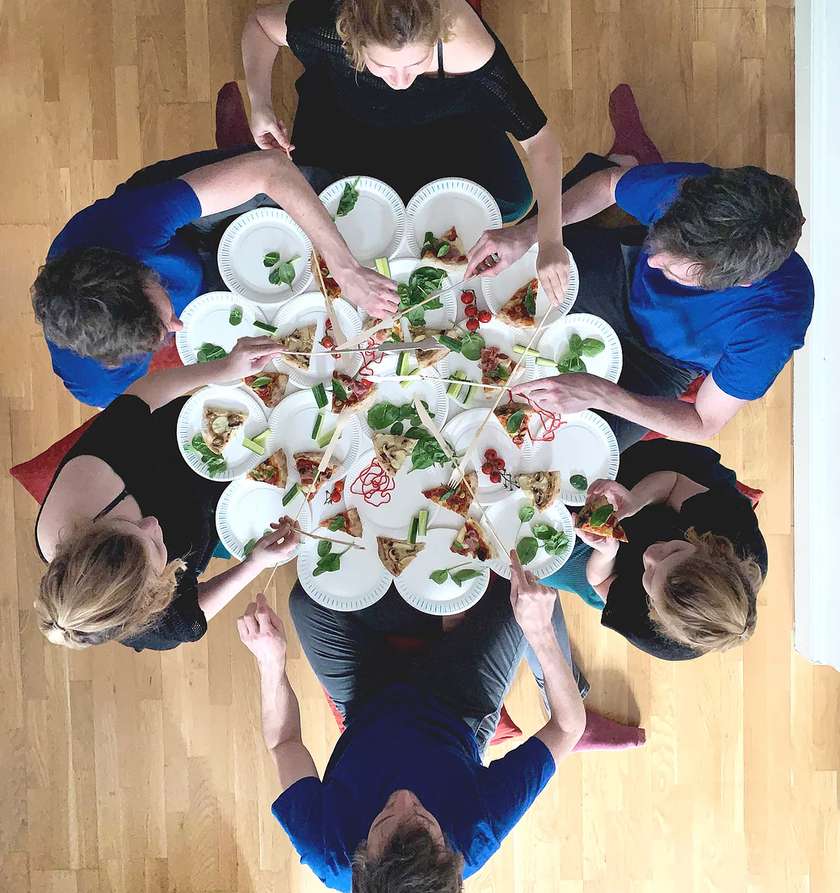
"Could you imagine a new dinner table where everyone eats together on a giant plate or drinks together with a long garland of glasses? It could result in lots of options of food and drinks, shared equally by the entire family. Could washing up become a fun collective activity to do all together after pudding?"
